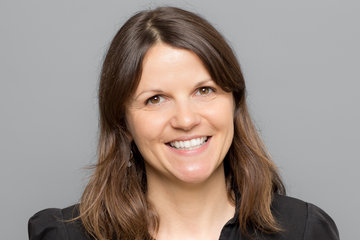Sukanya Guhathakurta receives MPG Minerva Fast Track Fellowship
Dr. Sukanya Guhathakurta was awarded a Minerva Fast Track position by the Max Planck Society to establish her own research group “Mechanisms of metabolic and epigenetic control of cell fate decisions” at the Max Planck Institute of Immunobiology and Epigenetics in Freiburg.

The precise regulation of cellular metabolism depends on a coordinated interaction between the nucleus and mitochondria. First of all, the mitochondria serve as the cellular powerhouse for generating energy and producing essential metabolites. But they not only fulfill the cell’s energy requirements. They also act as building blocks for both genetic and epigenetic structures within the nucleus. Conversely, most metabolic enzymes that govern mitochondrial processes are encoded by nuclear genes, highlighting the interdependence of these two organelles.
This inter-organellar communication is facilitated by molecules that shuttle between the nucleus and mitochondria. The histone acetyltransferase MOF, an enzyme and a classical epigenetic regulator, is such a wanderer between these two worlds. Moreover, it is the object of study of Sukanya Guhathakurta who will start a Minerva Fast-Track research group in 2024 at the Max Planck Institute of Immunobiology & Epigenetics in Freiburg (MPI-IE).

“My PhD research offered novel insights into the enzymatic functions of nuclear epigenetic factors such as MOF in other sub-cellular compartments like mitochondria. I could demonstrate that mutations in these epigenetic factors can lead to pathological manifestations influenced not only by the anticipated transcription dysregulation but also by mitochondrial and metabolic imbalances,” says the new group leader Sukanya Guhathakurta.
This research, which highlights the non-nuclear roles of epigenetic complexes and challenges conventional views on epigenetic factors, has already received recognition. The Cluster of Excellence CIBSS – Centre for Integrative Biological Signalling Studies at the University of Freiburg honored her work, published in Nature Metabolism, with the 2024 CIBSS InteGREATor Award. This biannual award recognizes outstanding publications that significantly contribute to CIBSS’s integrative biological signaling research efforts.
Sukanya was also able to convince the Max Planck Society with her research project to further question conventional views on epigenetic factors and gain a deeper understanding of the interplay between metabolism and epigenetics during human development. As part of the Minerva Fast Track Programme, she will receive financial support for the next three years to set up her own research group at the MPI-IE. Utilizing state-of-the-art high-throughput imaging and genomics, her team would seek to advance the understanding of the relationship between metabolism and epigenetics, particularly in the context of human pathologies.
The Minerva Fast Track Fellowships are currently being awarded as part of the 75. Annual Meeting of the Max Planck Society 2024 in Berlin.
CV
Sukanya Guhathakurta is from India. She earned her Bachelor’s degree in Microbiology from the University of Calcutta in Kolkata, India, and her Master's degree in Biotechnology from the Indian Institute of Technology in Mumbai, India. From 2016 to 2022, she was a PhD student in the lab of Asifa Akhtar at the Max Planck Institute of Immunobiology and Epigenetics, where she obtained her degree with Summa Cum Laude honors. Sukanya continued at the MPI-IE as a Postdoctoral Researcher in Asifa Akhtar’s Chromatin Regulation Department. From October 2024, Sukanya Guhathakurta will establish and lead a Minerva Fast-Track group on “Mechanisms of Metabolic and Epigenetic Control of Cell Fate Decisions” in the same department.
Minerva Fast Track?
The Max Planck Society’s Minerva Fast-Track Program supports outstanding young female scientists giving them the opportunity of long-term career planning after their doctorate. The maximum three-year funding starts immediately after the dissertation or first postdoc position. In case of a positive evaluation, the scientists can apply then for a Max Planck Research Group / Minerva W2 Research Group. The program was initially introduced in 2014 in the MPG Sections Chemistry, Physics and Technology, followed by the Human Sciences Section in 2017 and the Biology and Medicine Section in 2023. The program is an important building block for increasing the proportion of women in scientific leadership positions – while maintaining the highest quality standards.













